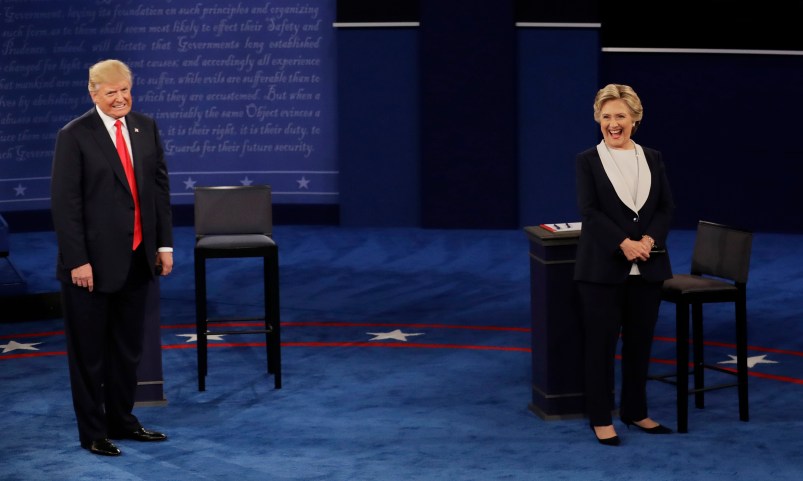The presidential race in Florida is neck-and-neck, with Hillary Clinton taking a hairline lead in the critical battleground state just one day before the election, according to a Quinnipiac Poll released Monday.
Clinton leads 46 percent to Donald Trump’s 45 percent, according to the poll. Libertarian Party candidate Gary Johnson gets three percent while Green party candidate Jill Stein polls at one percent.
Florida is an important state to win for both candidates. Experts point out that it is essentially a must-win for Trump, although they say Clinton could get to 270 electoral votes without it even though it would make her path to get to that number more difficult.
The poll found early voting turnout in the Sunshine State has seen voters go for Clinton 47 percent to Trump’s 43 percent, while the race for independent likely voters is also close, with 45 percent for Clinton and 44 percent for Trump.
Trump takes the bulk of white voters, who are voting for him 57 percent to Clinton’s 34 percent, while Clinton has the lead of non-white voters 68 percent to Trump’s 23 percent, the poll found.
The poll does little to calm anxieties for those who have seen the race tighten in recent days, with Peter A. Brown, assistant director of the Quinnipiac University Poll, saying that the race could remain too close to call even into election night.
“After hundreds of millions of dollars and untold man-hours, and woman-hours, of campaigning, it would be fitting if the entire country broke into a chorus of ‘It’s beginning to look like 2000,’ in the two states that matter most – Florida and North Carolina,” Brown said in a release.
As for the Senate race in Florida, incumbent Sen. Marco Rubio (R-FL) is ahead of his Democratic challenger Rep. Patrick Murphy (D-FL) 50 percent to 43 percent in the poll.
The poll found early voters show a slight preference for Rubio, supporting him 48 percent to Murphy’s 46 percent. Rubio takes the lead 55 percent to 39 percent among independent likely voters, and also leads 56-40 among men and 60-30 percent among white voters. Murphy and Rubio are tied with women voters at 46 percent each, while Murphy has the edge among non-white voters 61-33.
Quinnipiac University surveyed 884 likely Florida voters by land lines and cell phones from Nov. 3-6 with a margin of error of 3.3 percentage points.






